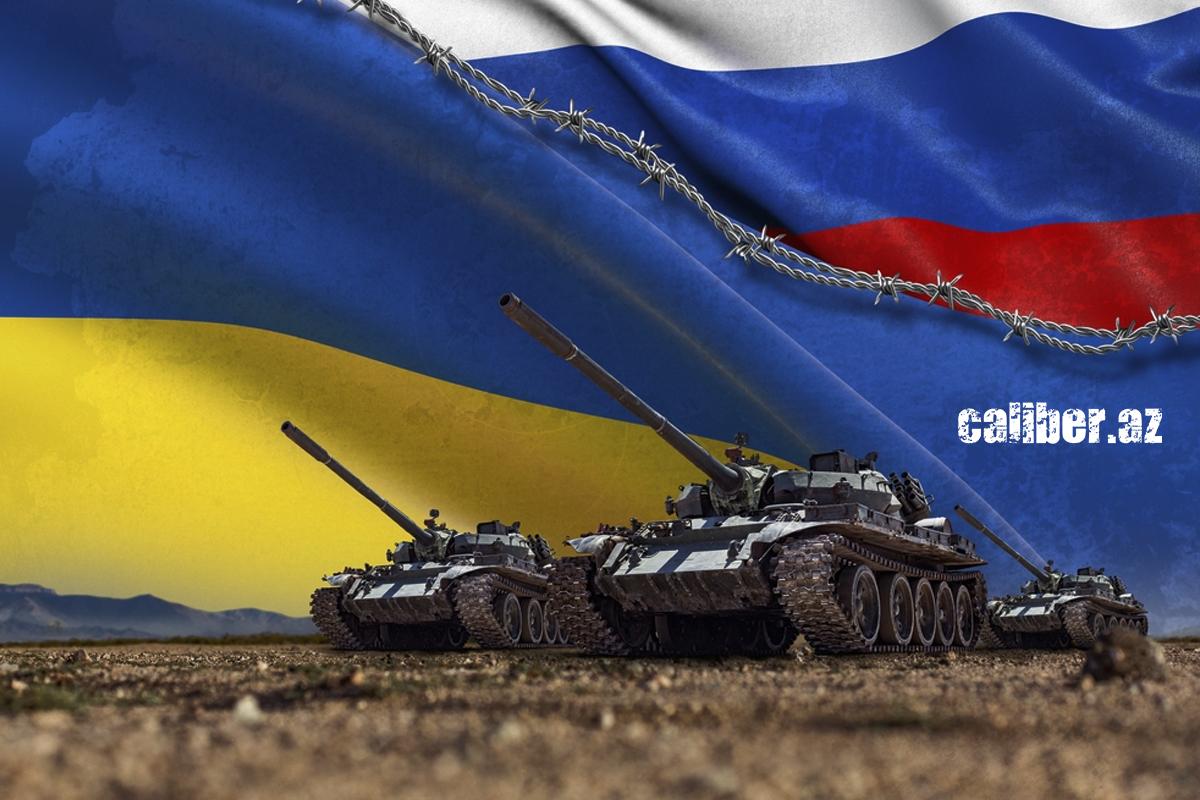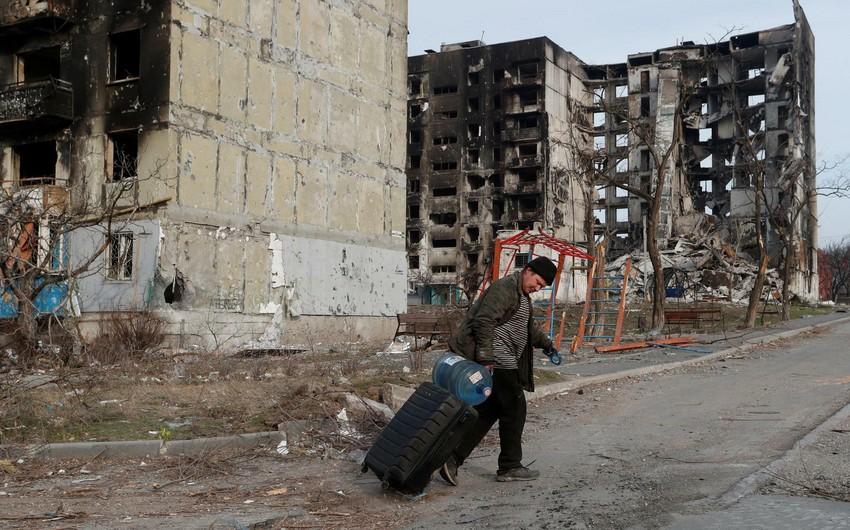Ukraine's geopolitical struggle and Azerbaijan’s independent path Why relying on your own strength is crucial
The European Council is set to revise its statement on Ukraine's victory on its website. This was reported by Politico, citing an unnamed European Council representative. "The Council website said ‘Ukraine must win this war.’ But contacted by Playbook, a Council official said this was a mistake and would be rectified," Politico reports, referring to a press release from December 16. The publication further notes that in its conclusion on December 19, the European Council declared that "Russia must not prevail." "That contrasts with Kallas’ insistence that Ukraine must win — but EU leaders can’t seem to bring themselves to go that far," the newspaper observes.
There is nothing particularly surprising about this turn of events. The United States acted in much the same way. The outgoing administration of President Joe Biden spent too long caught between two conflicting positions: "Ukraine must win" and "Ukraine must not lose." What has this led to? US allies are now claiming that President Biden’s strategy has undermined Ukraine’s chances of victory. This is clearly stated by Bloomberg. The publication points out that, despite efforts by the Biden administration to mobilise resources in support of Ukraine, officials in Kyiv and several allied capitals assert that this support came too late.
According to experts, the Biden administration effectively chose a strategy of deterring Russia rather than creating conditions for Ukraine’s victory. This approach has led to a protracted conflict, costing tens of thousands of lives and casting doubt on Kyiv's future. It’s important to remember that the United States is a signatory to the Budapest Memorandum. In exchange for Ukraine’s renunciation of nuclear weapons, the United States committed to guaranteeing Ukraine’s security and territorial integrity.
In practice, however, the United States has failed to fulfil its commitments. The US did not advocate for Ukraine's expedited accession to NATO, despite a clear understanding in Washington of the challenges facing the country. The response to the events in Crimea and the support for separatism in the Donetsk and Luhansk regions was also notably weak. The initial sanctions imposed by the US were even mocked in Russia.
Moreover, the US did not take all possible measures over the years to strengthen Ukraine’s military. This is the reality. The same can be said not only about the US but also about the EU and NATO. Among EU and NATO member states, there has been and continues to be, a lack of unity regarding Ukraine’s membership in these organisations. This remains the case nearly three years after the onset of the full-scale Russia-Ukraine war.

Furthermore, just recently, Speaker of the House Mike Johnson stated that he does not plan to bring the issue of additional aid to Ukraine to a vote in Congress, as reported by Voice of America on December 4. Earlier, US President Joe Biden had appealed to Congress for additional funding for Ukraine for 2025, amounting to $24 billion. "This is no longer Joe Biden’s decision to make. We now have a newly elected president, and we will wait to adopt the new commander-in-chief’s strategy on this matter," Johnson said.
He added that he does not expect any funding for Ukraine to be brought forward at this time. Johnson believes that the election of Donald Trump is already "“changing the dynamics of Russia’s war against Ukraine.” “We can already see this happening,” Johnson explained.
Meanwhile, Hungarian Prime Minister Viktor Orbán has informed European Union leaders that he plans to wait for the inauguration of elected US President Donald Trump before extending sanctions against Russia, as reported by Bloomberg, citing its sources. The publication reminds that the extension must take place by the end of January, just 11 days after Trump assumes office.
The extension of sanctions requires unanimous support from all 27 member states, which could allow Orbán to veto the decision. "The EU is already worried that Trump, who has suggested he may cut or eliminate US support to Ukraine, will strike a deal with Russian President Vladimir Putin. Orban’s objection drove home a key worry of European leaders: that the Hungarian leader may partner with Trump to shatter the bloc’s unity over supporting Ukraine financially and militarily," Bloomberg writes.

Such is the reality. It clearly signals that Ukraine may lose financial and military aid from the United States, which could lead to disarray within the EU, where unity on providing Ukraine with sufficient assistance to restore its territorial integrity remains lacking. This is especially true when considering the goal of returning to pre-2022 borders.
Meanwhile, France has set a record for the import of Russian liquefied natural gas. The country purchased 5.34 million tonnes in the first 10 months of 2024. This volume surpassed the total annual imports from any previous year since deliveries began in 2018, according to Bloomberg. It’s impossible not to recall that in 2023, Russia continued to supply hydrocarbons to the European Union that were not under sanctions. The figures are telling: EU countries purchased Russian oil, petroleum products, and gas worth over €29 billion in 2023, according to Eurostat data. Overall, in 2023, the total import of Russian goods into the 27 EU countries amounted to €50.64 billion, while EU exports to Russia totalled €38.32 billion. This represents the flip side of the EU’s "strategy of supporting Ukraine."
All the facts outlined above clearly suggest that the West is gradually "abandoning" Ukraine. It is plausible that the West will soon renegotiate, pressuring Kyiv to accept the loss of part of its territory. For Azerbaijan, such actions by the US and the EU are not surprising. This is because, during the years of Armenia’s occupation of 20% of Azerbaijan's territories, neither the US nor the EU imposed any sanctions on the occupying country. On the contrary, in the year of the occupation of Shusha and Lachin, and the year when Armenian militants carried out the Khojaly genocide, the US Congress passed the deeply immoral Section 907 amendment against Azerbaijan. In essence, this was an instance of sanctions being imposed on the victim of occupation. Additionally, there was the annual official financial aid provided by the US to the separatists in Karabakh.

Furthermore, there was the case of the French Senate, which, after Azerbaijan’s victory in the 44-day war, passed a resolution recognising the "independence" of the so-called "Artsakh." Following Azerbaijan’s counterterrorism operation in the Karabakh region, France attempted five times to push through an anti-Azerbaijani resolution at the United Nations Security Council.
They failed in their efforts. Overall, Azerbaijan has demonstrated to the world a unique example of how to restore territorial integrity through military and political means, regardless of opposition from major global powers, each of which has always acted, acting, and will act based on its own interests. This is precisely why strengthening the foundations of national sovereignty is so crucial.
Azerbaijan achieved historic victories relying solely on its own forces. As a result, Azerbaijan now possesses the strongest military and economy in the region and conducts a truly independent foreign policy. This is the path Ukraine could have chosen. Unfortunately, it allowed itself to become a battleground for the geopolitical rivalry between global powers. The consequences of this choice, as we can see, have been truly tragic.








